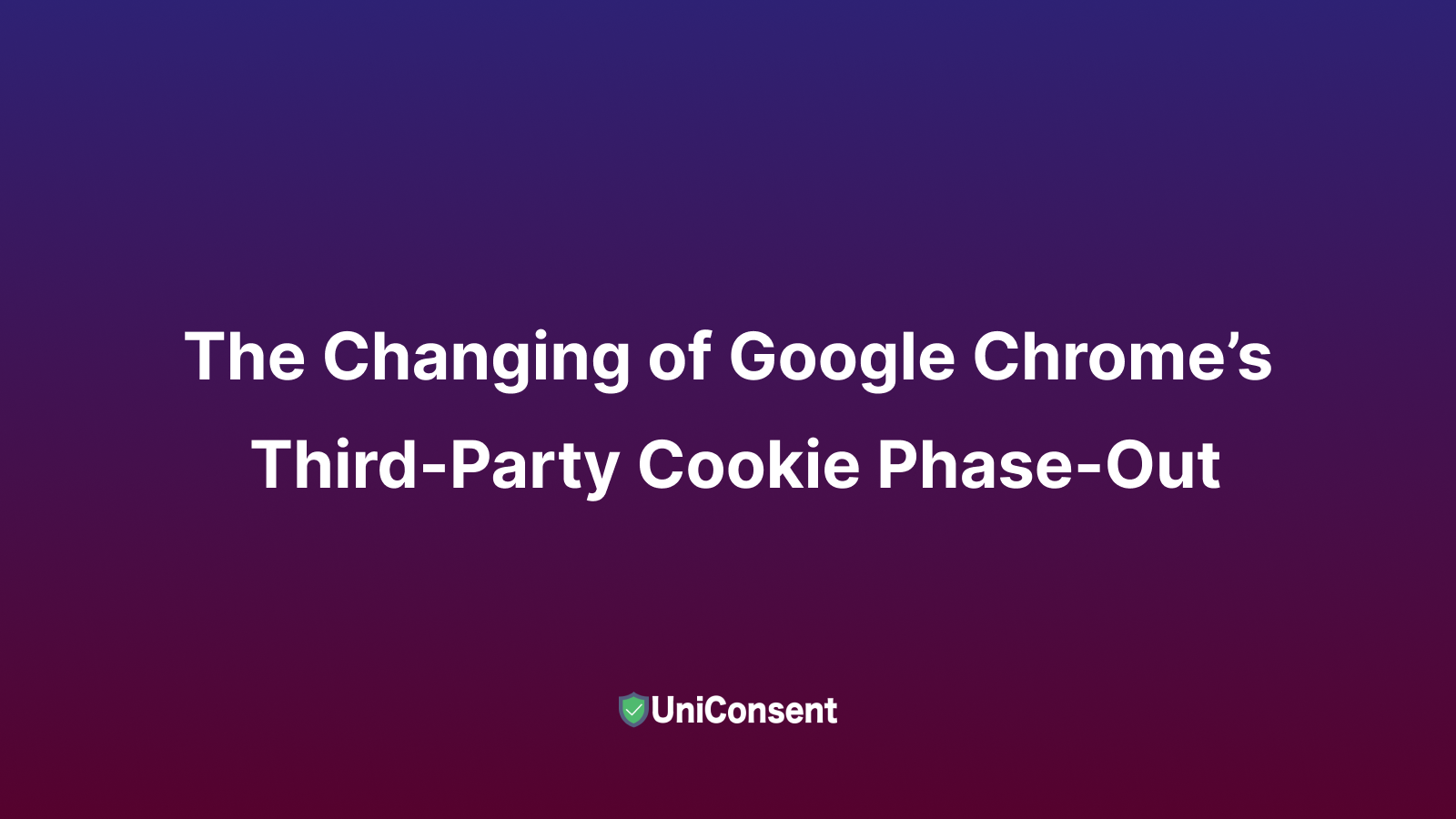The Changing of Google Chrome’s Third-Party Cookie Phase-Out
UniConsent
Inhaltsverzeichnis
Google’s plan to phase out third-party cookies in Chrome has taken another turn. Instead of a complete ban, the tech giant is now emphasizing user choice, allowing people to decide whether they want cookies tracking their online activity.
 Google Chrome’s Third-Party Cookie Phase-Out
Google Chrome’s Third-Party Cookie Phase-Out
What does this mean for users, advertisers, and publishers?
Google’s Evolving Cookie Phase-Out Plan
Google first announced its plan to kill off third-party cookies back in 2020, aiming for a two-year timeline. The reasoning? Privacy concerns and growing regulatory pressure. However, as the years rolled on, the timeline kept shifting:
- 2021: Google extended the deadline to late 2023, citing the need for a smoother transition.
- 2022: The phase-out was pushed further to the second half of 2024 to allow more industry adaptation.
- 2024 (January): Chrome disabled third-party cookies for 1% of users to test the impact.
- 2024 (July): Instead of fully eliminating cookies, Google proposed a new plan focusing on user choice.
Now, instead of a hard stop, users will be given the option to enable or disable third-party cookies while browsing. The plan is still under discussion with regulators and industry leaders.
Why the Change of Heart?
Google’s original goal was to enhance privacy and align with regulations like GDPR and CCPA. However, the backlash from advertisers, publishers, and the ad-tech industry was fierce. They argued that eliminating third-party cookies would make it harder to serve relevant ads, potentially hurting smaller publishers while consolidating power in Google’s own ecosystem.
Regulators, particularly the UK’s Competition and Markets Authority (CMA), also stepped in, questioning whether the move could give Google an unfair advantage by forcing advertisers to rely on its proprietary tools.
Faced with industry resistance and regulatory scrutiny, Google took a step back and introduced this new user-centric approach as a compromise.
What This Means for Advertisers and Publishers
In the short term, third-party cookies aren’t going away completely, but their future is uncertain. Advertisers and publishers must prepare for a world where:
- User consent is king. Businesses need to build trust and clearly communicate why data collection benefits users.
- First-party data matters more than ever. Relying on direct relationships with users (through email sign-ups, subscriptions, and loyalty programs) is crucial.
- Privacy-friendly advertising is the way forward. Contextual targeting, Google’s Privacy Sandbox, and alternative tracking solutions will play a bigger role.
How to Future-Proof Your Business
Even though third-party cookies are sticking around for now, businesses shouldn’t rely on them indefinitely. Here’s how to get ahead:
1. Strengthen First-Party Data Strategies
Encourage users to share data directly through incentives like personalized experiences, exclusive content, or loyalty rewards.
2. Explore Privacy-Safe Advertising Alternatives
Contextual advertising (which targets ads based on webpage content rather than user behavior) is making a comeback. Google’s Privacy Sandbox also offers solutions like Topics API to replace traditional tracking.
3. Stay Compliant with Consent Management Platforms (CMPs)
A robust Consent Management Platform (CMP) helps businesses navigate regulatory requirements and user preferences. Platforms like UniConsent make compliance easy by:
- Managing user consent for data collection and processing.
- Integrating with IAB’s Transparency & Consent Framework (TCF) to align with industry standards.
- Offering granular consent controls, allowing users to personalize their privacy settings.
About UniConsent
UniConsent, part of Transfon’s privacy-first User Experience Platform, ensures seamless compliance with data privacy laws. Serving millions of users daily, UniConsent helps businesses build trust while respecting user privacy.
Interested in learning more? Contact us at hello@uniconsent.com.
Activate Google Consent Mode UniConsent to enhance the accuracy of your Google Analytics and Google Ads conversion data.
Set up Google Consent Mode →Beginnen Sie damit, Ihre Website und Anwendung gemäß EU-DSGVO, US-CPRA, CA-PIPEDA usw. konform zu machen
RegistrierenRessourcen für die Einwilligungsmanagement-Plattform
Beginnen Sie damit, Ihre Website und Anwendung gemäß EU-DSGVO, US-CPRA, CA-PIPEDA usw. konform zu machen
Registrieren